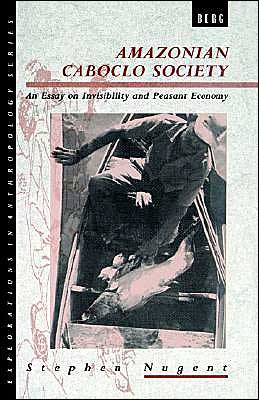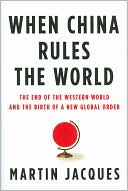Amazonian Caboclo Society: An Essay on Invisibility and Peasant Economy
Amazonian Caboclo Society is concerned with peasant society in Brazilian Amazonia. Most anthropological work in Amazonia has focused on Indian groups, and caboclos (peasants of mixed ancestry) have generally been regarded as relics of the haphazard development of Amazonia and have received little serious attention. This volume aims to analyze the reasons for the relative 'invisibility' of caboclo society. It traces the development of caboclo societies and argues that much of the current...
Search in google:
Amazonian Caboclo Society is concerned with peasant society in Brazilian Amazonia. Most anthropological work in Amazonia has focused on Indian groups, and caboclos (peasants of mixed ancestry) have generally been regarded as relics of the haphazard development of Amazonia and have received little serious attention. This volume aims to analyze the reasons for the relative 'invisibility' of caboclo society. It traces the development of caboclo societies and argues that much of the current discussion of 'sustainable development' fails to recognize the important legacy of historical caboclo society.
List of FiguresList of TablesList of MapsMapsGlossaryPrefacePt. ICaboclos Out of History1Introduction3The Specificity of an Historical Peasantry82Invisible Caboclos, Visible Nature20The Concept of Caboclo23Caboclo Society as an Anthropological Object of Analysis26The Construction of Invisibility I: The Non-equivalence of Amerindian and Caboclo Societies29The Construction of Invisibility II: Invisible Peasants32The Consequences of Invisibility34Images of the Other in Contemporary Amazonia: Caboclo and the Anthropological Other40Pristine Amazonia and the Perfect Other43Aspects of Caricature453Social System as a Function of Ecosystem: The Ecological Idiom in Amazonian Studies56The Peasant Landscape and Modern Amazonia60The Managed Ecosystem71Crocodile Tears: Modernization in Amazonia74Brazil as Client-state77The State as Broker78The Social Object89Pt. IICaboclos in History4Santarem and the 'Failure' of Transamazonica93The Modernization Landscape94Peasants as a Default Category100The Metaphors of Stagnation and Pathology108The Boundaries of Santarem109The People of Santarem112A Sketch of Occupational Structure116Local Society Versus International Culture117Contingency and Permanence in Santareno Peasant Production122The City as Wreckage125Political Background130The Church131Facing the O Futuru1345Exploring Santareno Identity: Kinship, Domestic Groups and Social Organization137Kindreds140Case Studies of Kindreds155Kindred Composition and the Transformation of 'Traditional' Society1716Petty Commodity Production and Formal Subsumption: Caboclo Peasants176The Caboclo Complex179Petty Commodity Production: The 'Immigrant' Nordestino Complex183Formal Subsumption in the Absence of Real Subsumption186The 'Japanese Complex'1917Merchant Capital, Social Reproduction and Blockage199Social Reproduction and the Petty Commodity Repertoire202Locating Merchant Capital210Merchant Capital, Social Reproduction and Use-values, Export of Surplus Value210Merchant Capital and Subordination217The Allocthanous Origins of Amazonian Peasantries2278Maintaining the Image of Sustainable Development230The Specificity of Amazonianist Discourse233Sustainability versus Social Reproduction235Combu and Forest Management246The Future of Sustainability in Amazonia254Bibliography256Index275








